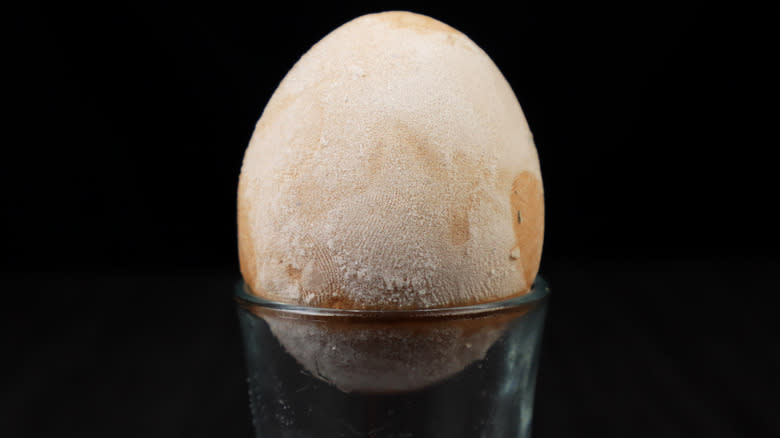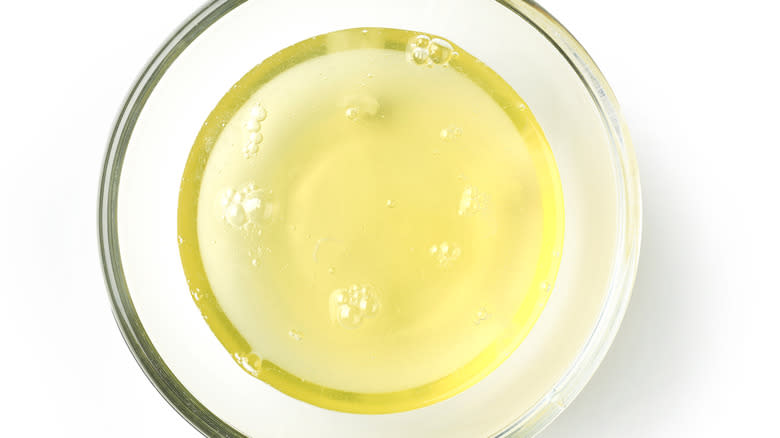The Crucial Step To Take Before You Store Eggs In The Freezer

There are a lot of reasons to want a bunch of eggs. With prices fluctuating, when you stumble on a great deal, maybe you feel inclined to load up your stores. Or, possibly you've come in contact with someone who sells them farm fresh and a fear rises up that they may run out of the tasty eggs with the deep-marigold yolks only unencumbered hens seem to lay. Regardless, if you can't gobble them all up, storage becomes an issue, and you wonder if it is in the realm of possibility to freeze raw eggs. The good news is yes it is, but it isn't as straightforward as transferring a dozen or so from the fridge to the freezer.
First things first, it is crucial that the shells are removed. If you've ever stuck a bottle of soda in the freezer only to return to an exploded mess, then you get where this is going. While a poultry egg -- this info is good for duck and quail eggs, too -- certainly isn't carbonated, it is largely water, and water expands when it freezes. When that water is contained within a confined space, i.e. an egg shell, with no pressure release for the expanding mass, the shell will rupture. The result is a frozen matrix of egg white, yolk, and shell that is unsalvageable. Additionally, the texture of the yolk becomes rubbery when freezing raw eggs in their shells, an outcome that will impact future cooking.
Read more: Hacks That Will Make Boiling Your Eggs So Much Easier
How To Freeze Eggs The Right Way

Knowing that the shells have to go, you have some decisions to make in regard to how to proceed with freezing the raw eggs. When cracking the eggs, if you take care to open the shells gently into two roughly even "cups," you can sort the yolks from the whites by carefully moving the yolk back and forth from shell half to shell half so that the white falls into a waiting bowl or other receptacle below. The yolk can then be placed into a different vessel. It's a time-consuming process, but one that is worth it for the task at hand.
The whites being mostly water, freeze with aplomb. You can freeze several altogether in one container -- with room for expansion -- or separate individual whites into ice cube trays, freeze, and then store them in a bag in the freezer for recipes or even cocktails. Yolks require more care due to their consistency which, as discussed above, changes during freezing. Both salt and sugar can help prevent this, so add an eighth to a half teaspoon of salt or one and a half teaspoons of sugar per quarter cup of whisked egg yolks and label them thusly before freezing. The salted yolks can be used for savory recipes and the sweetened ones are perfect for baking and other sweet recipes. Alternately, the whole eggs can be whisked or blended together and frozen with the whites protecting the yolks from becoming gummy.
Read the original article on Tasting Table

 Yahoo Sports
Yahoo Sports 